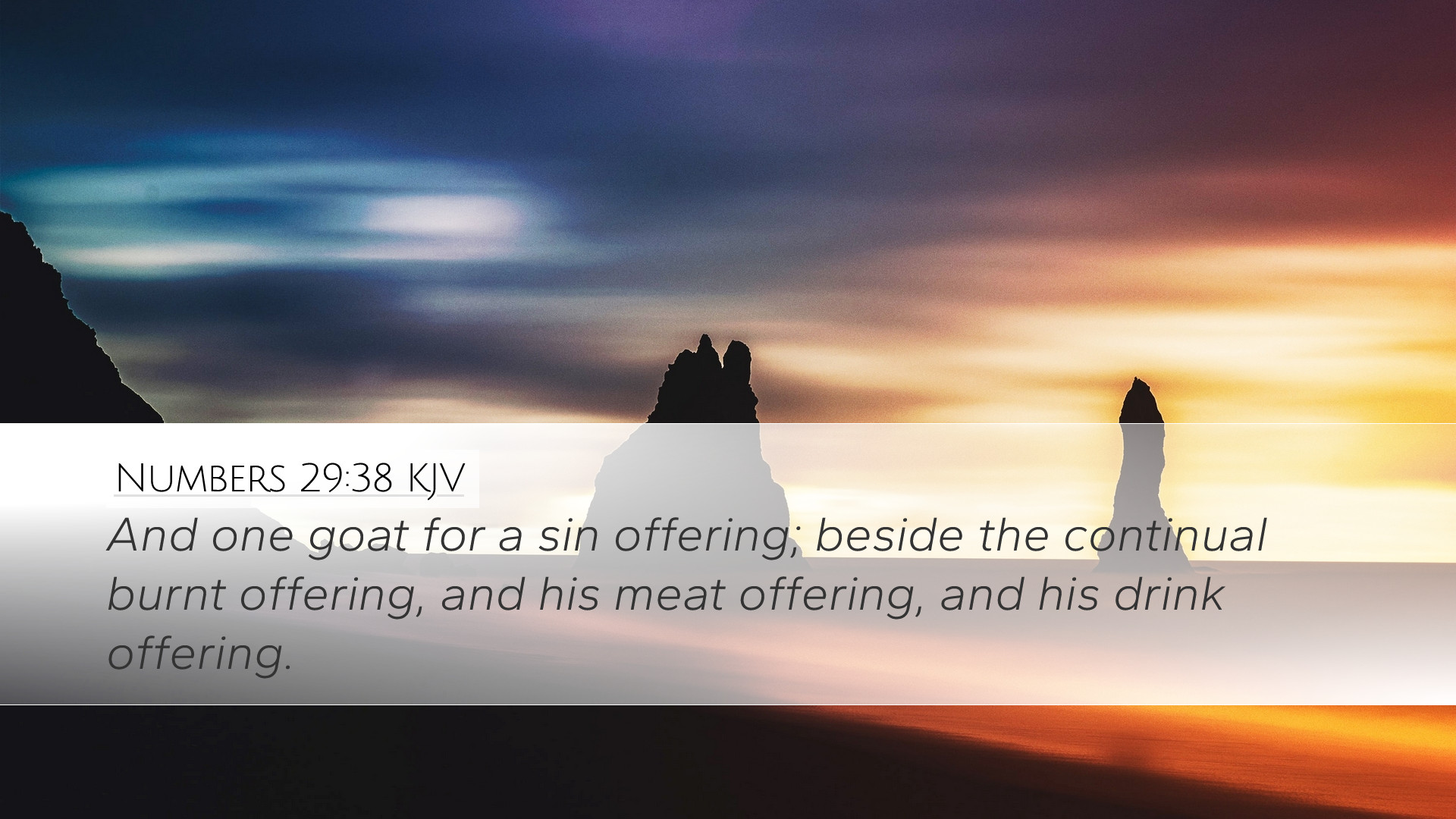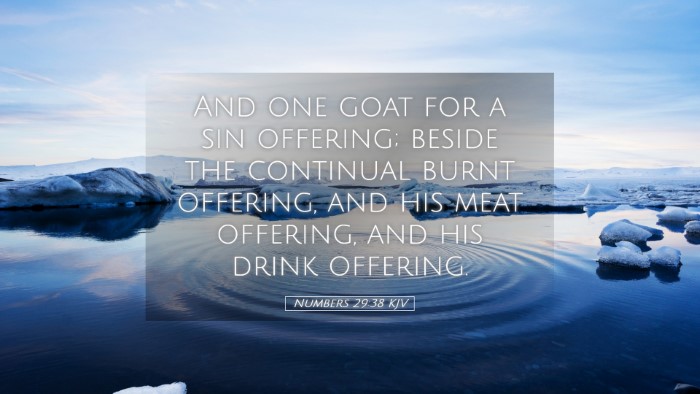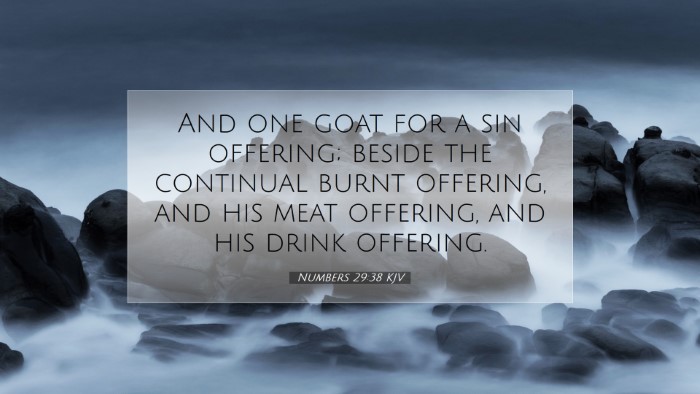Commentary on Numbers 29:38
Numbers 29:38 states: "And a tenth part of an ephah of flour for a meat offering, mingled with the third part of a hin of oil, unto one lamb; for a burnt offering of a sweet savor unto the LORD."
Contextual Overview
This passage is part of the instructions given to the Israelites concerning offerings, specifically related to the Feasts and festivals described in Numbers 29. The chapter outlines various sacrifices that were to be made during these significant times for Israel, illustrating the relationship between ritual and worship within the Old Covenant.
Commentary Insights
Matthew Henry's Commentary
Matthew Henry emphasizes the importance of these sacrificial practices as a means of expressing gratitude and dependency on God. He notes that the tenth part of an ephah of flour signifies the equal participation of both the rich and poor in worship, as flour was a common offering that could be provided by all. Henry highlights the symbol of flour suggesting purity and the oil representing the lavish grace of God. The burnt offering is indicative of total surrender to God, and its pleasing aroma speaks of the acceptance of God’s people in Christ.
Albert Barnes' Commentary
Albert Barnes elaborates on the significance of the meat offering (grain offering) which is integral to the worship life of the Israelites. He explains that this offering is meant to accompany the burnt offering, demonstrating that while animals were sacrificed for sin, the grain offering symbolizes gratitude for the blessings received. Barnes notes the mingling with oil signifies the richness of God’s mercy and the sweetness of the worship due to His grace. He brings to attention the specific measurements, asserting the precision in God’s directives underlining the holiness of worship.
Adam Clarke's Commentary
Adam Clarke provides a detailed observation of the hin of oil being one-third which suggests a substantial amount that accompanies the sacrificial lamb. Clarke expresses that this practice forms a pattern for worship, wherein offerings were never made solely out of obligation but with deep reverence and preparation. He reflects on the communal aspect of such sacrifices during the Feast, where the entire community participated in recognizing God’s provision and grace. Clarke also connects the sacrifice of lambs in anticipation of Christ’s ultimate sacrifice, enhancing the purpose of worship as a prophetic precursor to the New Covenant.
Theological Themes
- Symbolism of Offerings: The offerings outlined in Numbers 29 depict a multifaceted relationship between the worshipper and God, encompassing themes of atonement, thanksgiving, and devotion.
- Divine Mandate: The precise instructions reflect a larger principle about divine order in worship, asserting that God expects His people to approach Him in a manner that aligns with His holiness.
- Covenantal Relationship: These offerings emphasize the protective relationship between God and His people, marked by faithfulness and obedience, where blessings flow from adherence to God's commands.
- Anticipation of Christ: The burnt offerings and the lamb serve as foreshadowing of Christ’s ultimate sacrifice, where the sweetness of the burnt offering finds its fulfillment in the perfect atonement made by Jesus.
Practical Applications
- Worship with Intent: Modern worshippers can learn the importance of approaching God with prepared hearts and giving, recognizing the value of dedication and intentionality.
- Inclusivity in Worship: Just as different offerings were expected from the rich and poor alike, contemporary churches are encouraged to foster a culture where everyone can contribute to worship regardless of their means.
- Recognizing God’s Provisional Grace: Believers today should reflect on the significance of God's provision in their lives and respond with gratefulness through acts of service and offering.
- Celebrating Covenant Relationship: Understanding the historical practices helps deepen the appreciation for the New Covenant, encouraging believers to live out their faith authentically and actively in their communities.
Conclusion
Numbers 29:38 serves not only as a historical account of the sacrificial system of ancient Israel but also invites contemporary believers to consider their acts of worship. The insights from public domain commentaries provide profound reflections on the nature of God, the requirements of worship, and the foreshadowing of New Testament theology. Through careful examination of such texts, pastors, students, and theologians can draw rich theological and practical applications, fostering a more profound engagement with the Word of God.


